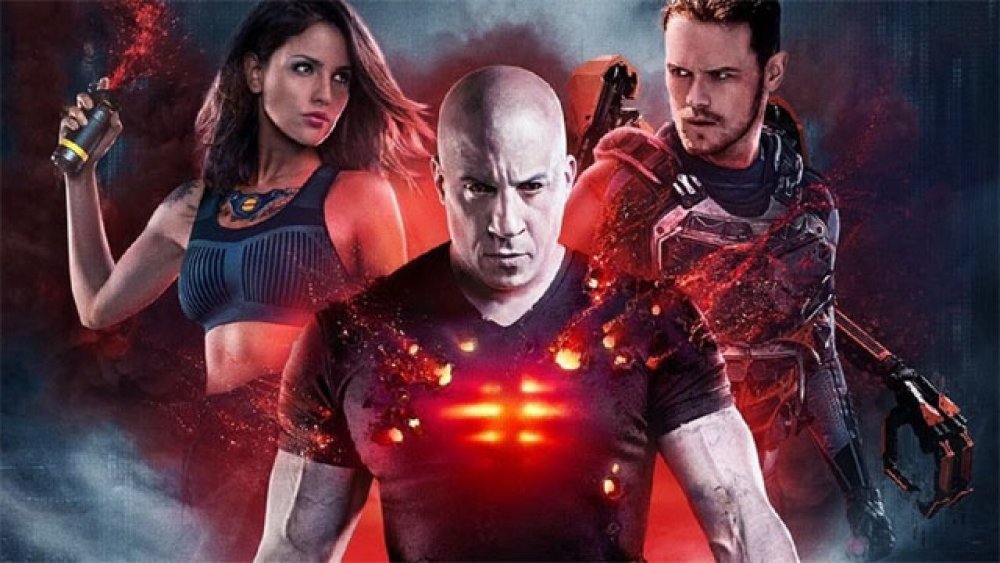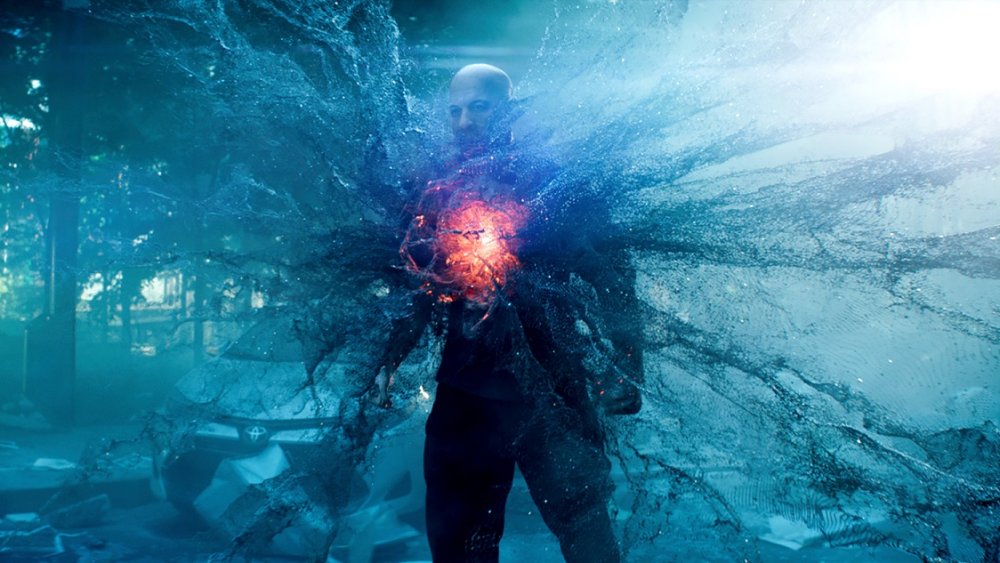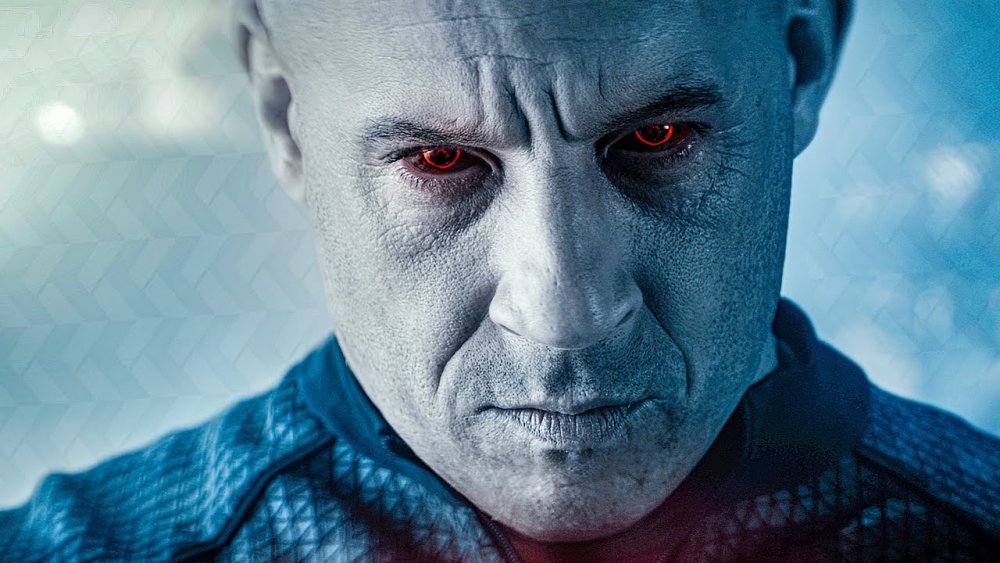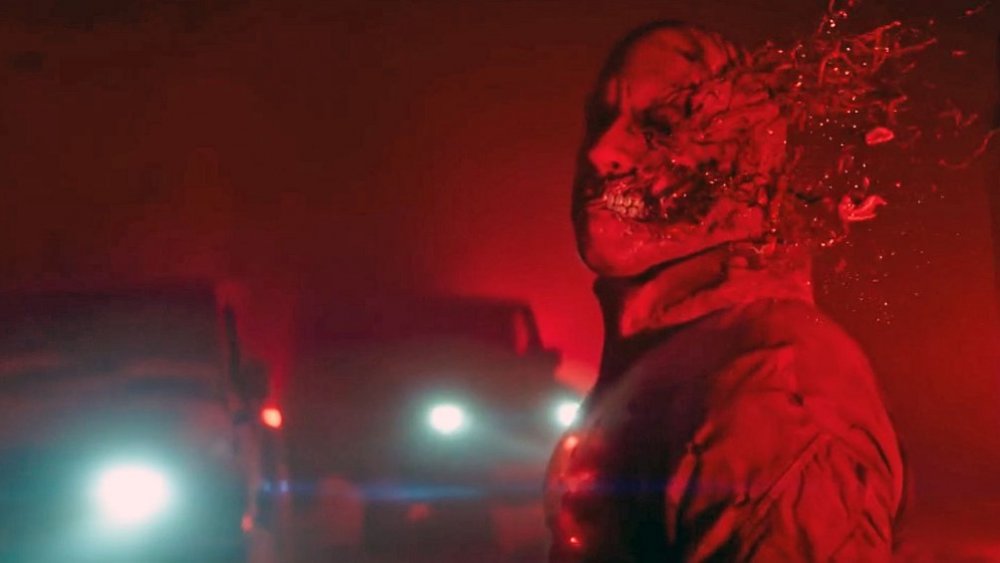Director Dave Wilson On Bloodshot's Cutting-Edge Technology And The Valiant Cinematic Universe - Exclusive Interview
Bloodshot is a movie full of firsts. It marks the first big-screen debut of a Valiant Comics character. It might be the first installment in a brand new shared cinematic universe (although certain rights issues make that proposal a little dicey). Most notably, it's the first feature film from director Dave Wilson, former creative director at visual effects and animation house Blur Studios, where he worked alongside Deadpool director Tim Miller for well over a decade.
It's not all new, of course — at its core, Bloodshot is still the kind of pulpy, sci-fi action movie you'd expect from star Vin Diesel — but in a world dominated by Marvel, Bloodshot feels like a breath of fresh air. Even better, the movie recently made the jump from theaters to video-on-demand services. If you missed it at the cineplex, Bloodshot is available to watch right now.
We talked with Wilson about what it's like to create a new cinematic superhero universe, why Bloodshot is different from DC and Marvel's heroes, and how realistic Bloodshot's mind-bending tech really is. Spoiler: It's a lot closer to reality than you might think.
How Deadpool's Tim Miller got Wilson ready for Bloodshot
This is your first feature film gig, but it's not your first directing gig. Can you talk a little bit about the work you did at Blur Studios?
Tim Miller, who owns and runs Blur, flew me out in 2002. I worked with him for 15 years before I made this film. At the end, Tim and I were the creative directors of the company. Our core business was video game trailers, which are basically just five-minute or 10-minute commercials for Halo or Star Wars or Titanfall.
You know, it's funny, because when I would go and talk to studio folks about making films, the question I would always get is like, "Well, can you work with actors?" because a lot of it is visual effects and animation. But the truth, especially recently, is there's more and more performance capture in movies than there has been ever before. It's arguably harder work, because you're standing in a white padded room with an actor very exposed in a black leotard, and there's nothing around them, and they're like, "What am I doing here?" So, you sort of have to paint the world in for them. It's more like theater in the round than it is anything else.
The work we did there was basically micro-storytelling in these five to ten-minute shorts, which I adored and I love, and we were very trusted within the game community. They would come to us sometimes with a blank page and say, "This is our game. These are our characters. Help us tell a little five-minute story to sort of indoctrinate an audience into our world."
You mentioned working with Tim, who directed Deadpool. Did he give you any advice when it came time to make your own superhero movie?
I think it's impossible for Tim to not give you advice.
No, I love Tim. I would say it wasn't one piece of advice, really, before I went off to make the movie. He gave me a slew of advice and criticism over 15 years that made me very much who I am.
Actually, there was one piece of advice. He said to me, "You can't do it all yourself, so make sure you lean on your crew." Tim knows me well. I tend to overcompensate and work a little too hard and a little too long. Not that he's anyone to talk. He does exactly the same thing.
I feel like more than anything that running that company is what prepared me most for the film. There are 150 artists at Blur. Making creative choices is one thing, but getting the best out of people every day, because you can't make a movie all by yourself, is what nobody really teaches you. I would say the experience of working with Tim and everyone at Blur for as long as I did was what was best for it. There are obviously the little nuggets along the way, but I think it was more all the time I spent with him that was the best preparation.
Vin Diesel is ready for the bigger Valiant universe
In addition to starring in this movie, Vin Diesel is also listed as a producer. Can you talk a little bit about what he brought to the movie behind the camera?
It's funny, Vin has been a part of so many large franchises at this point that it's almost impossible for him to separate himself from thinking beyond just the day. Certainly, when he's in the scene he's in the scene, but the morning before, or the weekend before, or the night before, it is always about making sure there are enough breadcrumbs, enough avenues to explore the world further, beyond just the movie we're working on, which obviously comes from his many years of building the franchises that he has. Every day, it is a conversation of, "How do we leave a little trail that can also plant the seed that will bear fruit in a second or third or fifth movie?"
And, you know, the wealth of 20 years of making films, which is evident from working through the script every day and finding something to work with. But from a producer standpoint, definitely, "How do we sow seeds for future films?" When it comes to marketing, too, he's been there so many times, thinking about how best to position the film. Very, very smart and proactive about all that.
This film was originally supposed to kick off a whole new cinematic superhero universe. Is that still the plan?
I say to Vin all the time, "Look, my job is just to make one good film, and then the powers can be can worry about everything else that's coming." I'm like, "Should we be so lucky. Fingers crossed." It feels a little above my pay grade, those sorts of decisions.
But yes, there is enough material out there in the Valiant universe to make any number of films you want. There are groups and characters that I love, from Bloodsquirt to Bloodhound to H.A.R.D. Corps. Speaking about transhumanism, H.A.R.D. Corps is one that I love, just a group of degenerates that are given super powers through technology. I love those characters. As far as how it all pans out in the future, who knows? Again, I keep my head down and just make the best movie I can and hope for the best.
Bloodshot's science might be fiction for now, but it's not as far off as you think
There are lots of superhero movies out there. What does Bloodshot offer that Marvel and DC don't?
Well, I'm a massive science fiction nerd. That's what I grew up reading. Definitely my fair share of comic books too, but when the script came in I really wanted to focus on a science-fact approach. Very grounded in technology. There was this concept of a very manipulated character at the core that I thought was fascinating, and that's what I wanted to go for.
I'm a big Tony Scott fan, and more than anything I wanted to take a very aggressive filmmaking approach to the movie. Ultimately, at the end of the day, there's always a core element that attracts you, and it was this concept of the illusion of choice in a society rampant with technology. We sort of have this false sense of agency in our lives because we Google something, or Waze tells us which way to go, you swipe left or right or whatever it is. These are curated responses, like menus for us to choose from.
I felt like the character was the personification of that. It was a story that I wanted to tell wrapped in action, because no one goes to the theater for TED Talks anymore. So, it was an interesting concept at the core that I liked. It was grounded as a superhero movie. It has a lot in common with the '80s and '90s action movies that I grew up loving. So, it was just trying to carve out what little space was left for ourselves between the juggernauts that are out there.
Obviously, nanite zombies are not a thing, but is any of the tech in this movie realistic?
It depends on who you ask. If you go and ask the scientists at the UCLA nanoscience lab, who I went to talk to before we started making the movie, they'd probably say, "Nothing." But there is an aspect of transhumanism in the movie.
I do feel like we are going to be faced in the next 10-20 years with the dilemma of what happens when physical capabilities, or even logical ones, are something that you can just buy? If you want to be stronger, or faster, or you want a chip in your head that means you never have to forget anything ever again? What happens when you can buy those things? What does it do to the class structure? It's fascinating to me. We approach it in a more superficial fashion in the film than I think is relevant, because it is pretty remarkable how far we've come.
I mean, while there aren't nanites that are inside you and can heal you, there are already these little pills you swallow that float around in your body and give you feedback on your blood pressure, your cholesterol levels, and your heart rate. It feeds into your Apple Watch, which in turn uses the computing power of your phone. It's just fabulous about how all that is tying in. Right now, it's just sort of supplementing us, but what happens when it actually changes our abilities? I find that part fascinating.



